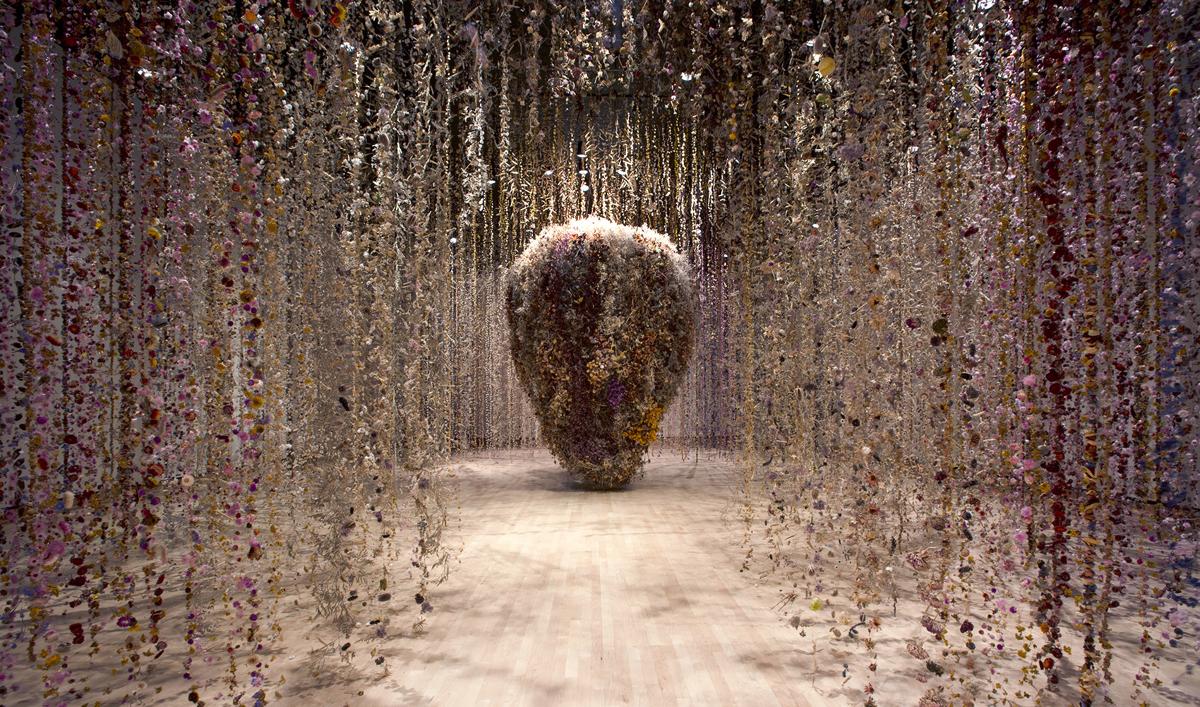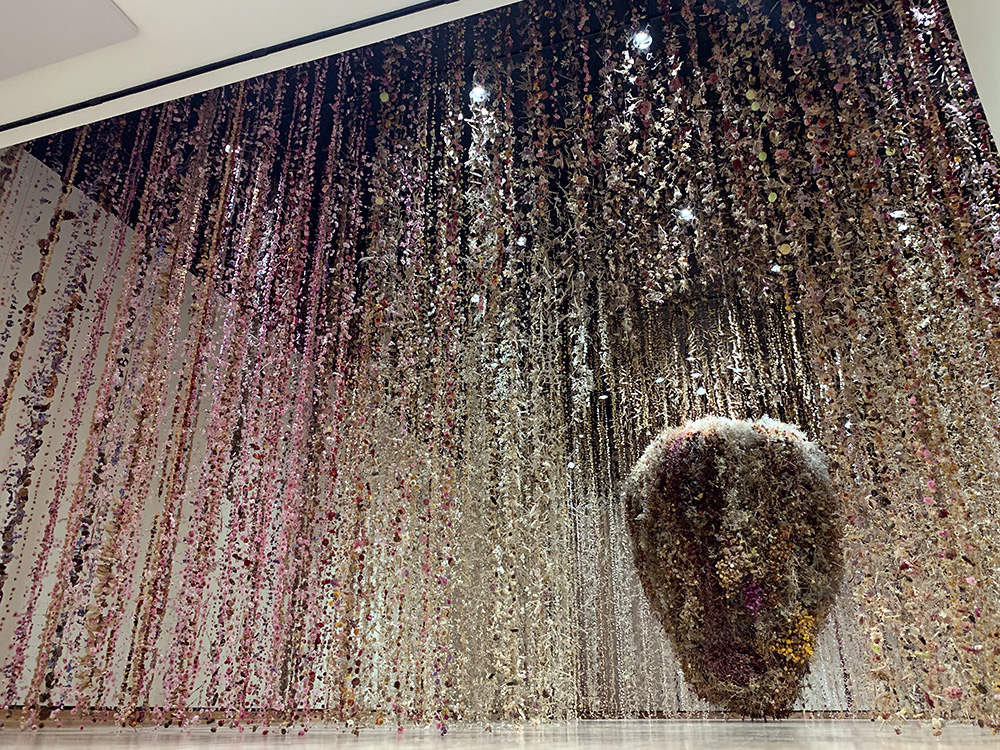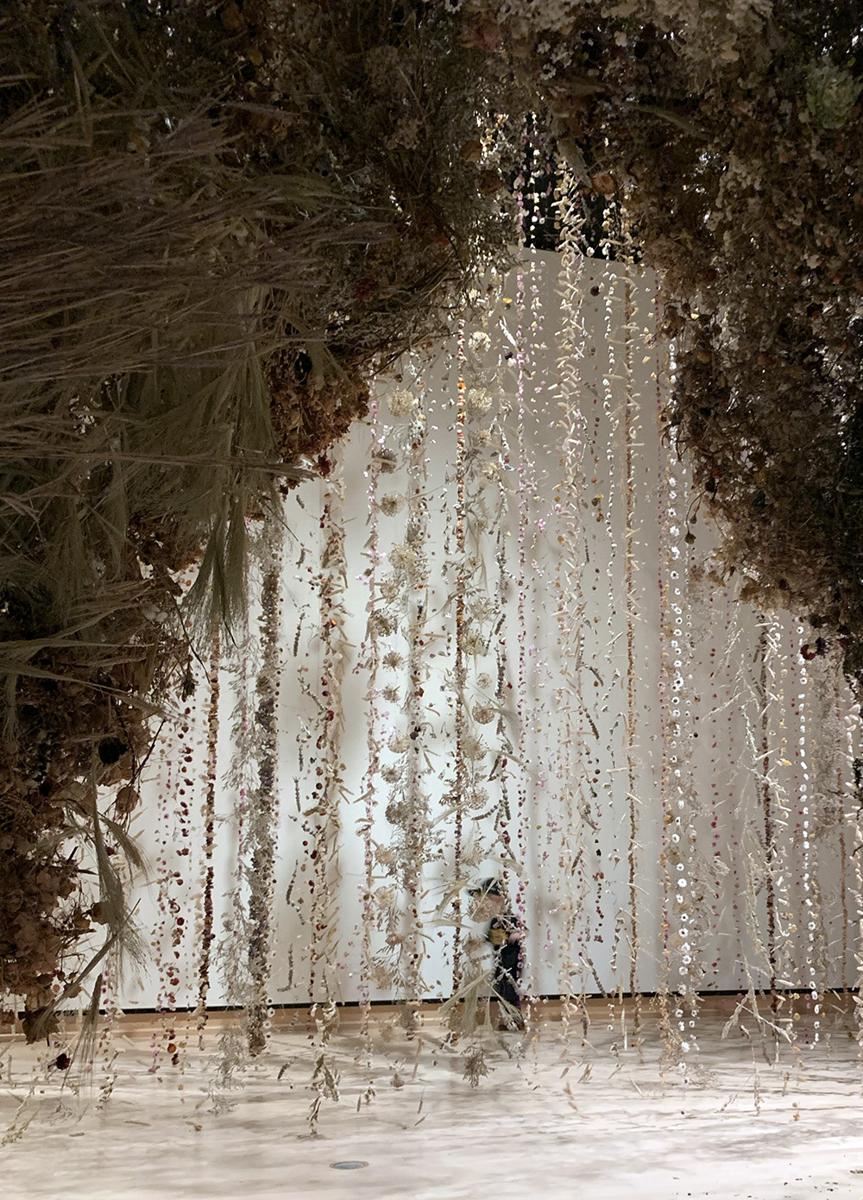March 10: “Seek First His Kingdoms & His Righteousness”
♫ Music:
Day 22 - Wednesday, March 10
Title: “SEEK FIRST HIS KINGDOM & HIS RIGHTEOUSNESS”
Scripture: Matthew 6:25-34
“For this reason I say to you, do not be worried about your life, as to what you will eat or what you will drink; nor for your body, as to what you will put on. Is not life more than food, and the body more than clothing? Look at the birds of the air, that they do not sow, nor reap nor gather into barns, and yet your heavenly Father feeds them. Are you not worth much more than they? And who of you by being worried can add a single hour to his life? And why are you worried about clothing? Observe how the lilies of the field grow; they do not toil nor do they spin, yet I say to you that not even Solomon in all his glory clothed himself like one of these. But if God so clothes the grass of the field, which is alive today and tomorrow is thrown into the furnace, will He not much more clothe you? You of little faith! Do not worry then, saying, ‘What will we eat?’ or ‘What will we drink?’ or ‘What will we wear for clothing?’ For the Gentiles eagerly seek all these things; for your heavenly Father knows that you need all these things. But seek first His kingdom and His righteousness, and all these things will be added to you. So do not worry about tomorrow; for tomorrow will care for itself. Each day has enough trouble of its own.
Poetry:
The Sandpiper
by Elizabeth Bishop
The roaring alongside he takes for granted,
and that every so often the world is bound to shake.
He runs, he runs to the south, finical, awkward,
in a state of controlled panic, a student of Blake.
The beach hisses like fat. On his left, a sheet
of interrupting water comes and goes
and glazes over his dark and brittle feet.
He runs, he runs straight through it, watching his toes.
– Watching, rather, the spaces of sand between them
where (no detail too small) the Atlantic drains
rapidly backwards and downwards. As he runs,
he stares at the dragging grains.
The world is a mist. And then the world is
minute and vast and clear. The tide
is higher or lower. He couldn’t tell you which.
His beak is focussed; he is preoccupied,
looking for something, something, something.
Poor bird, he is obsessed!
The millions of grains are black, white, tan, and gray
mixed with quartz grains, rose and amethyst.
SEEK FIRST
“Each day has enough trouble of its own.” One of the reasons I love Jesus is because His words ring so true. This wry observation—that each day comes with plenty enough trouble for you to deal with on that day—is just…true. You wake up, and you think you know what’s coming, and…you don’t. You get to the end of the day, and look back on it, and you might say, “I didn’t know I’d have to help my teenager through that sorrow.” Or, “I didn’t know my workday would be upended so thoroughly.” Or, “Well, the ER wasn’t where I thought I’d be spending five hours today.”
Even on days that don’t involve an ER visit, we reach the evening having wrestled with temptations and troubles. Quite possibly, they overmatched us, and we did not have the strength or virtue to meet them. If we did have the strength and virtue to stand, then we have God to thank: He gave us that day our daily bread—we were able to draw from His infinite goodness the grace not to fall off of that narrow way.
And that grace: that is our daily bread. Why do you worry about what you will eat? asks our Lord. Because, of course, He is the bread that sustains us, He is the bread of life. When Jesus tells us to seek first the kingdom of God, and God’s righteousness, He is both setting us off on our quest and standing there as the end of it. In Jesus, we see all the righteousness and faithfulness of God our Father, who sent His Son to the world to save it. Because He loves us.
And even if this sounds too spiritual, too obscure, you just have to look back to Jesus’ words to see that it’s not: Your Father knows you need physical food too, He says—a gentle, humorous reminder that He, who formed us in the womb, isn’t ignorant about our bodies. He knows our bodies like He knows the flowers of the field (see the fecund abundance of them in artist Rebecca Louise Law’s work!), like He knows the birds of the air (see the poor, frantic bird of Bishop’s poem!). He knows our bodies, because He made us.
God made us—and Jesus Himself condescended to take on a body that needed actual sleep, physical food, and water made of hydrogen and oxygen—just like us. He knows.
But, seek first, He says. Because this is even more practical than oxygen: finding God and being found by Him. What good is it to have a live body but a dead soul? Is there any hope in that, any chance of life forever? Can you (perhaps by worrying?), keep that body alive past its allotted century or so?
No, you really can’t. So eat your food and drink your water—your body needs them, and right now part of your duty is to care for your body. But. But. You will not be fit to meet today’s trouble
without the Holy Spirit within you, resisting the temptations you cannot, providing the love you yourself don’t feel, supplying the wisdom you yourself don’t have.
And, when your physical body fails, you certainly will not be fit to meet the terror of That Day without the covering grace of the Lord Jesus, who invites you, today, to seek first His righteousness, His kingdom…where you will find bread indeed for your hunger, and where there is living water for all who come.
Prayer:
O God, because without you we are not able to please you, mercifully grant that your Holy Spirit may in all things direct and rule our hearts; through Jesus Christ our Lord, who lives and reigns with you and the Holy Spirit, one God, now and forever.
Amen.
(From The Book of Common Prayer.)
Jessica Snell
Biola Class of 2003
Torrey Honors College
Writer and Editor
For more information about the artwork, music, and poetry selected for this day, we have provided resources under the “About” tab located next to the “Devotional” tab.
About the Artwork:
The Womb (several views)
Rebecca Louise Law
September 2019–March 2020
Approx. one million dried flowers
Installation Location: Frederik Meijer Gardens & Sculpture Park
Grand Rapids Township, Michigan
The Womb explores the intimate relationship between humankind and nature. At Meijer Gardens, artist Rebecca Louise Law created an immersive installation working with dozens of volunteers and a team of horticulture staff. At the heart of the exhibition is an installation offering a solitary, sublime experience of being totally enveloped in nature. As visitors walk through nearly a million dried flowers, they are invited to contemplate the splendor and sheer abundance of the natural world and reflect upon our God’s providential care and provision. Accompanying the installation are mixed media artworks that examine The Womb as a natural cocoon. In recent years, Rebecca Louise Law has explored the idea of the cocoon through a series of paintings of the womb in different stages of producing and sheltering life, from primordial cell to embryo.
About the Artist:
Rebecca Louise Law is a British installation artist, best known for artworks created with natural materials, mostly flora. The physicality and sensuality of her work plays with the relationship between humanity and nature. Community participation and sustainability are also central to her large-scale installations. Constructed out of nature’s materiality surrounding the viewer, Law offers a glimpse of the sublime found in the sense of grandeur and awe projected by her installations. One ceases to be a mere spectator but rather becomes an organic part of this interior-scape that transforms and activates the exhibition space. Notable commissions include Pride (Skovgaard Museum, Denmark); The Beauty of Decay (Chandran Gallery, USA); Life in Death (Shirley Sherwood Gallery, UK); Community (The Toledo Museum of Art, USA); and The Womb (Frederick Meijer Sculpture Park and Gallery, USA). Law comments about her work, “I like to capture and treasure small beautiful natural objects to create an artwork that can be observed without the pressure of time. Preserving, treasuring, celebrating, and sharing the beauty of the Earth with the world is what drives me.”
https://www.rebeccalouiselaw.com/
https://www.rebeccalouiselaw.com/artwork/the-womb-2
About the Music: “Symphony No. 3, Op. 36, II. Lento e Largo - Tranquillissimo” from the album Gorecki: Symphony No. 3
Lyrics (translated from Polish):
Mother, Do not cry, no
Most pure, Queen of Heaven,
Protect me always,
Hail Mary
About the Lyricist:
Helena Wanda Blazusiakówna (1927-1999) was a young Polish woman whose prayer was set to music by composer Henryk Górecki in his Symphony No. 3 Sorrowful Songs. Blazusiakówna was from the vicinity of Zakopane in the south of Poland. Under the Nazi occupation of Poland during World War II, Blazusiakówna was arrested on September 26, 1944 and held at the Gestapo headquarters in Zakopane. During her imprisonment she scratched a short prayer into the wall of cell number three, which was subsequently discovered by the Polish composer Henryk Górecki and set to music as the second movement of his Symphony No. 3 Sorrowful Songs. Bound for Auschwitz after her imprisonment, Blazusiakówna was rescued when the train she was on was overtaken by Polish partisans. She later married, had five children, and died in 1999.
http://www.listenmusicculture.com/mastery/sorrowful-songs
https://en.wikipedia.org/wiki/Helena_B%C5%82a%C5%BCusiak%C3%B3wna
About the Composer:
Henryk Górecki (1933–2010) was a Polish composer in the Western classical tradition whose somber Symphony No. 3 (1976) enjoyed extraordinary international popularity in the late twentieth century. Górecki studied at the Music Academy of Katowice in Poland. A change in his compositional style came in 1963, and folk songs, medieval music, and references to his Roman Catholic faith characterized his subsequent work, which was frequently based on tragic themes and cast in very slow tempi. “I want to express great sorrow,” Górecki said, as he contemplated various conflicts and hardships across the globe. Widespread interest in Górecki’s music may have been related to Poland’s emergence in 1989 from five decades of Communist rule. In large measure, however, the composer’s rise in prominence was the result of the tremendously successful recording in 1992 of his Symphony No. 3: Symphony of Sorrowful Songs performed by soprano Dawn Upshaw and the London Sinfonietta, conducted by David Zinman. Symphony No. 3 consists of three movements in slow lento and largo tempi and is played at low dynamic levels throughout. The symphony gradually builds upward from low strings to the soprano voice, which suggests an element of light amid otherwise dark shadows. The texts are Polish lamentations, including a fifteenth-century monastic song, a folk song, and the prayer of Helena Wanda Blazusiakówna.
https://www.britannica.com/biography/Henryk-Gorecki
About the Performers:
Dawn Upshaw, London Sinfonietta conducted by David Zinman
Dawn Upshaw (b. 1960) is an American soprano. The recipient of several Grammy Awards and Edison Prize-winning discs, she performs both opera and art song, and in repertoire from Baroque to contemporary. Many composers, including Henri Dutilleux, Osvaldo Golijov, John Adams, and Kaija Saariaho, have written for her. She has premiered more than twenty-five new works. In 2007, she was awarded a MacArthur Fellowship. She tours regularly with pianist Gilbert Kalish. She holds honorary Doctor of Arts degrees, honoris causa, from Yale University, the Manhattan School of Music, Illinois Wesleyan University, and Allegheny College.
https://en.wikipedia.org/wiki/Dawn_Upshaw
The London Sinfonietta is an English contemporary chamber orchestra founded in 1968 and based in London. The ensemble has headquarters at Kings Place and is the Resident Orchestra at the Southbank Centre. Since its inaugural concert in 1968—giving the world premiere of Sir John Tavener’s The Whale—the London Sinfonietta’s commitment to making new music has seen it commission over 300 works, and premiere many hundreds more. The core of the London Sinfonietta is its eighteen principal players. In September 2013 the ensemble launched its Emerging Artists Programme. The London Sinfonietta’s recordings comprise a catalogue of twentieth-century classics, on numerous labels as well as the ensemble’s own London Sinfonietta Label.
https://londonsinfonietta.org.uk/
David Zinman (b. 1936) is an American conductor and violinist. After violin studies at the Oberlin Conservatory, Zinman studied theory and composition at the University of Minnesota, earning his M.A. in 1963. Zinman has held several conducting posts throughout his career including: the Netherlands Chamber Orchestra from 1965 to 1977; the Rotterdam Philharmonic Orchestra from 1979 to 1982; the Rochester Philharmonic Orchestra from 1974 to 1985; the Baltimore Symphony Orchestra; and the Tonhalle-Orchester Zürich in 1995. Zinman conducted the soundtrack of the 1993 film of the New York City Ballet production of Tchaikovsky’s Nutcracker. Zinman’s 1992 recording of Henryk Górecki’s Symphony No. 3 with Dawn Upshaw and the London Sinfonietta was a highly acclaimed international bestseller of classical music.
https://en.wikipedia.org/wiki/David_Zinman
About the Poet:
Elizabeth Bishop (1911–1979) was an American poet and short story writer. She was Consultant in Poetry to the Library of Congress from 1949 to 1950, the Pulitzer Prize winner for Poetry in 1956, the National Book Award winner in 1970, and the recipient of the Neustadt International Prize for Literature in 1976. Bishop was greatly influenced by the poet Marianne Moore, who helped Bishop publish some of her poetry. The friendship between the two women is memorialized by an extensive correspondence and endured until Moore’s death in 1972. During her lifetime, Bishop was a respected yet somewhat obscure figure in the world of American literature. Since her death in 1979, however, her reputation has grown to the point where many critics, like Larry Rohter in The New York Times, have referred to her as “one of the most important American poets” of the twentieth century. Bishop was a perfectionist who published only 101 poems during her lifetime, preferring instead to spend long periods of time refining her work. Her verse is marked by precise descriptions of the physical world and an air of poetic serenity, but her underlying themes include the struggle to find a sense of belonging and the human experiences of grief and longing.
https://www.poetryfoundation.org/poets/elizabeth-bishop
https://en.wikipedia.org/wiki/Elizabeth_Bishop
About the Devotion Author:
Jessica Snell
Biola Class of 2003
Editor of Let Us Keep the Feast: Living the Church Year at Home
Jessica Snell is a writer and editor who graduated from Biola University and the Torrey Honors College in 2003. She’s the editor of Let Us Keep the Feast, a book about celebrating the Christian church year at home. Her work has appeared in Focus on the Family, Touchstone Magazine, Christ and Pop Culture, and many more. She and her husband live in sunny Southern California with their four children.


